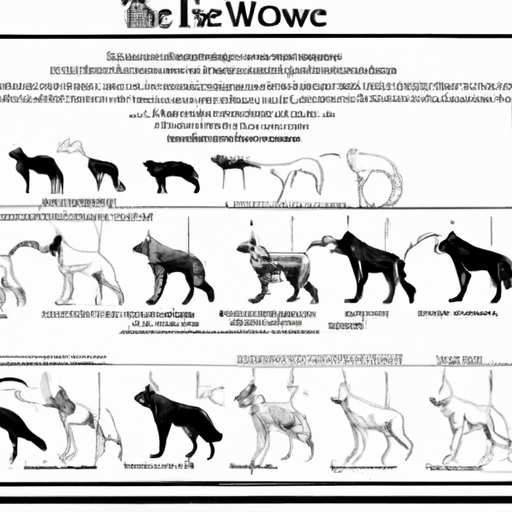“`markdown
How did dogs evolve from wolves?
Introduction
You might look at your beloved canine companion and wonder, “How did dogs evolve from wolves?” It’s a fascinating tale that spans tens of thousands of years, an epic story of survival, adaptation, and symbiosis. So, sit back, relax, and let’s embark on a journey to discover the origins of man’s best friend.
The Common Ancestor
About 40,000 years ago, dogs and wolves shared a common ancestor. This means, the cuddly friend on your couch didn’t evolve directly from the wolves we know today, but rather, both species evolved separately from a common wolf-like ancestor.
| Species | Time of Evolution |
|---|---|
| Dogs | 40,000 years ago |
| Wolves | 800,000 years ago |
The Domestication Process
The story of how dogs evolved from wolves is really a tale of domestication. Imagine, tens of thousands of years ago, you, as a human hunter-gatherer, befriend a wolf. You feed it, care for it, and in return, it helps you hunt and protects your camp. This is essentially how the domestication process began.
- Selection: The wolves with characteristics beneficial to humans (like friendliness and submissive behavior) were more likely to receive care and food, leading to a selective breeding process.
- Taming: Over generations, these wolves became tamer, slowly transforming into the domestic dogs we know today.
Genetic Changes and Breeds
Over time, dogs evolved to develop a wide range of shapes, sizes, and colors. This is due to genetic changes and selective breeding by humans.
- Genetic Changes: Changes in the genes of dogs have led to physical and behavioral differences from wolves. For example, dogs have evolved to digest starch more efficiently, helping them thrive on a human diet.
- Selective Breeding: Humans have selectively bred dogs for specific traits, leading to the creation of hundreds of unique breeds.
How Dogs Impacted Human Civilization
Dogs have played a significant role in human civilization. From helping with hunting to providing companionship, dogs have been an integral part of human society for thousands of years.
- Hunting: Dogs helped humans hunt more efficiently, leading to a more stable food supply.
- Protection: Dogs provided protection against predators and other threats.
- Companionship: Dogs offered emotional support and companionship, a role they still play today.
FAQ
Q: When did dogs evolve from wolves?
A: Dogs started to evolve from a common ancestor with wolves around 40,000 years ago.
Q: How did the domestication process occur?
A: The domestication process began when friendly and submissive wolves started interacting with humans and were selectively bred over generations.
Q: How did dogs impact human civilization?
A: Dogs have been a significant part of human civilization, aiding in hunting, providing protection, and offering companionship.
“`



